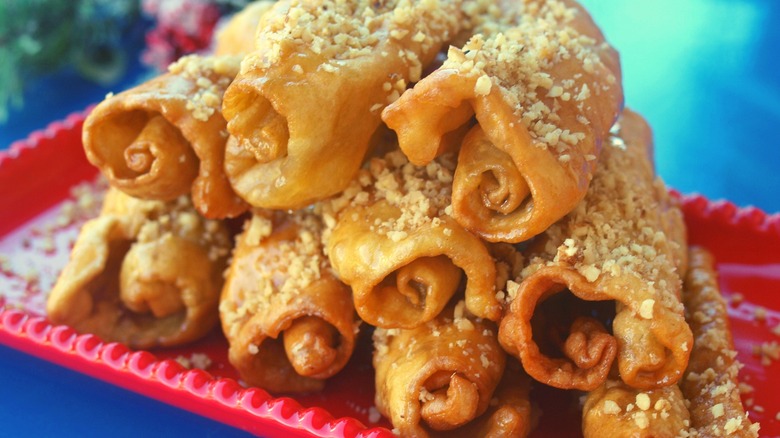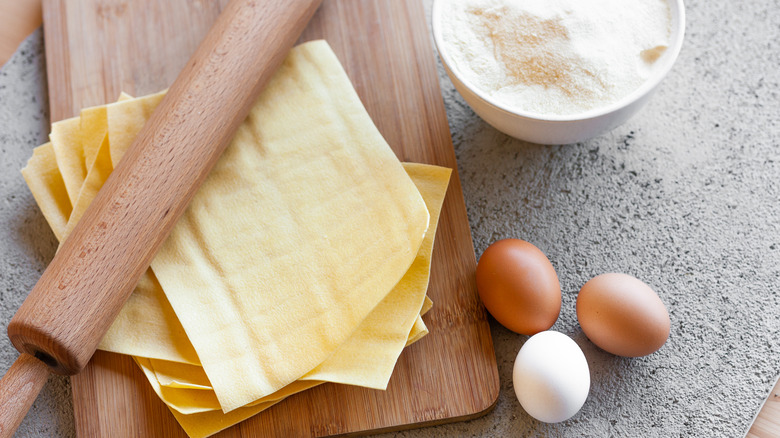Diples Is The Greek Fried Dessert Reserved For Special Occasions
From phyllo-wrapped spinach and feta spanakopita to nut and honey baklava, Greek cuisine offers a panoply of sweet and savory pastries. Diples are another type of Greek dessert pastry that are reserved for special occasions like religious holidays and weddings.
Originating in Greece's southern region of Peloponnese, diples are fried, spiraled pastry dough covered in a cinnamon and citrus-infused honey syrup and dusted with chopped walnuts. "Diples" is the Greek word for "fold," which describes their shape and method of assembly: Thin rectangles of dough are gently rolled into cylindrical spirals while they're deep fried.
These are special occasion desserts due to the difficulty of their execution; not only do you make the dough and syrup from scratch, but the process of rolling and frying the dough into the desired shape is an advanced skill. Common phyllo pastries like baklava, kataífi, and portokalópita are all layered and baked desserts that are much easier to make.
Diples consist of an egg-heavy dough infused with citrus, vinegar, and sometimes an alcoholic spirit. It's similar in consistency to homemade pasta dough. Tart notes from the citrus and vinegar add vibrance to the dough's richness while complementing its sweetness. As the dough fries, it puffs up like pastry dough into a light, crispy, and bubbly spiral that effectively traps the honey and cinnamon syrup. The syrup also acts as the glue for the crushed walnut topping.
Making diples: techniques and shortcuts
Deep frying is a demanding and sensitive process that requires more precision and care than baking. However, diples add an even higher level of difficulty because you have to fold them into the hot oil, essentially forming them and frying them simultaneously. Furthermore, you have to patiently roll the dough into very thin sheets before cutting them into long rectangular pieces resembling lasagna sheets.
While a rolling pin is fundamental for rolling dough, pasta noodle rollers are the best tools to achieve the thickness and uniformity desired for the dough. The hardest step is frying and shaping the diples. The traditional technique is similar to twirling pasta around a fork. Place one end of the rectangular dough between two of the fork's tines and roll it down into the frying oil. For an easier and equally effective alternative, you can pre-roll each sheet of dough into a cylinder before gently placing them in the hot oil.
The dough and the syrup contain citrus juice already, but you can get a more intense flavor with additional zest. You could also draw inspiration from baklava for the syrup and toppings. Rosewater and orange flower water are delicious accompaniments to honey, while pistachios, pecans, and hazelnuts are good alternatives to walnuts.

